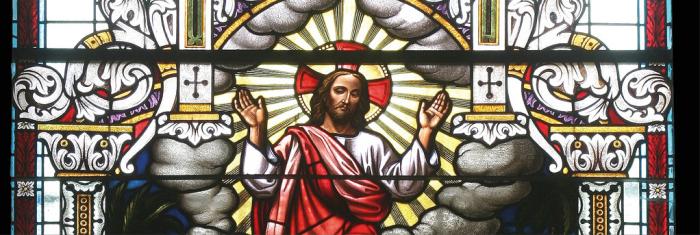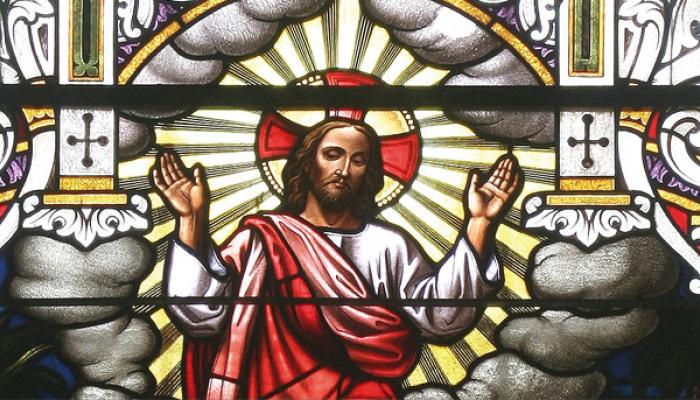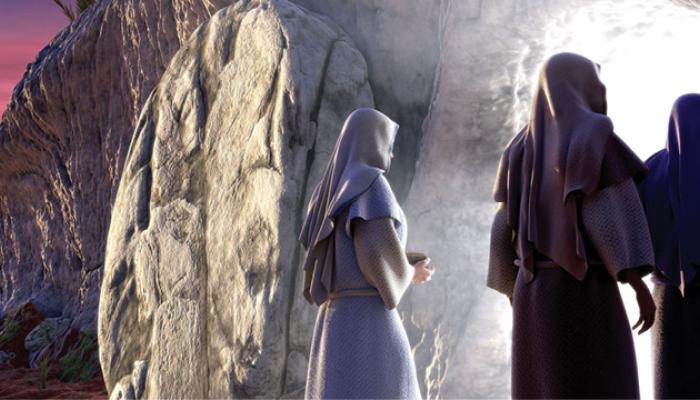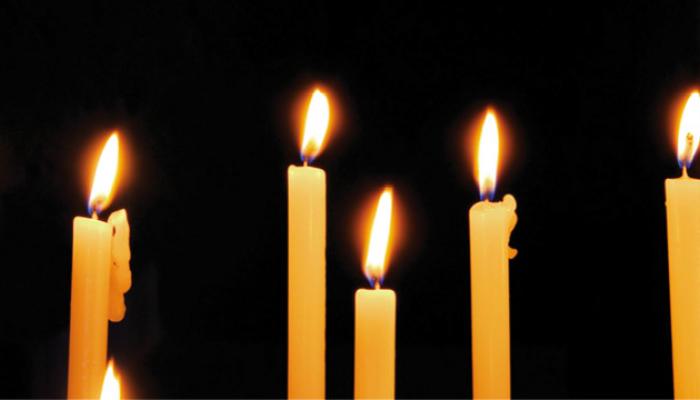
3.34 When do we celebrate Ascension and Pentecost?
After his resurrection on Easter Sunday, Jesus appeared to his disciples during a period of forty days. He spoke to them about God and the future that he had prepared for the people: the Kingdom of God (Acts 1:3) Acts 1:3: After his suffering, he showed himself to these men and gave many convincing proofs that he was alive. He appeared to them over a period of forty days and spoke about the kingdom of God.. Forty days after Easter Sunday, we commemorate Jesus’ ascent to heaven, or “Ascension”.
His disciples spent the days after Ascension in prayer (Acts 1:14) Acts 1:14: They all joined together constantly in prayer, along with the women and Mary the mother of Jesus, and with his brothers.. Just like us, they were looking forward to the arrival of the Helper or Comforter, the Holy Spirit that Jesus promised (Jn. 17:7 Jn. 17:7: Now they know that everything You have given me comes from You., Acts 1:9-11 Acts 1:9-11: After he said this, he was taken up before their very eyes, and a cloud hid him from their sight. They were looking intently up into the sky as he was going, when suddenly two men dressed in white stood beside them. “Men of Galilee,” they said, “why do you stand here looking into the sky? This same Jesus, who has been taken from you into heaven, will come back in the same way you have seen him go into heaven.”). Pentecost is the fiftieth day after Easter. This is the day when we celebrate the entry of the Holy Spirit into the life of Christians. The Apostles were so filled with the Holy Spirit, that they felt compelled to proclaim the Gospel of Jesus.
What does it mean to say that Jesus ascended into heaven?
With Jesus, one of us has arrived home with God and remains there forever. In his Son, God is close to us men in a human way. Moreover, Jesus says in the Gospel of John, “And I, when I am lifted up from the earth, will draw all men to myself” (Jn 12:32).
In the New Testament, the Ascension of Christ marks the end of forty days during which the risen Lord was especially close to his disciples. At the end of this time, Christ, together with his whole humanity, enters into the glory of God. Sacred Scripture expresses this through the images of “cloud” and “heaven” or sky. “Man”, says Pope Benedict XVI, “finds room in God.” Jesus Christ is now with the Father, and from there he will come one day “to judge the living and the dead”. Christ’s Ascension into heaven means that Jesus is no longer visible on earth yet is still present. [Youcat 109]
What happened on Pentecost?
Fifty days after his Resurrection, the Lord sent the Holy Spirit down from heaven upon his disciples. The age of the Church began.
On Pentecost the Holy Spirit transformed fearful apostles into courageous witnesses to Christ. In a very short time, thousands had themselves baptized: it was the birthday of the Church. The miracle of the languages on Pentecost shows that the Church is there for all peoples from the very beginning: She is universal (= the Latin term for the Greek kat’ holon, catholic) and missionary. She speaks to all men, overcomes ethnic and linguistic barriers, and can be understood by all. To this day the Holy Spirit is the “soul” of the Church, the essential principle of her life. [Youcat 118]
“As the Father has sent me, even so I send you... Receive the Holy Spirit” (Jn 20:21-22); this is what Jesus says to us. The gift of the Spirit on the evening of the Resurrection took place once again on the day of Pentecost, intensified this time by extraordinary outward signs... like a wind which shook the place the Apostles were in, filling their minds and hearts. They received a new strength so great that they were able to proclaim Christ’s Resurrection in different languages. [Pope Francis, Homily on Pentecost, 24 May 2015]





